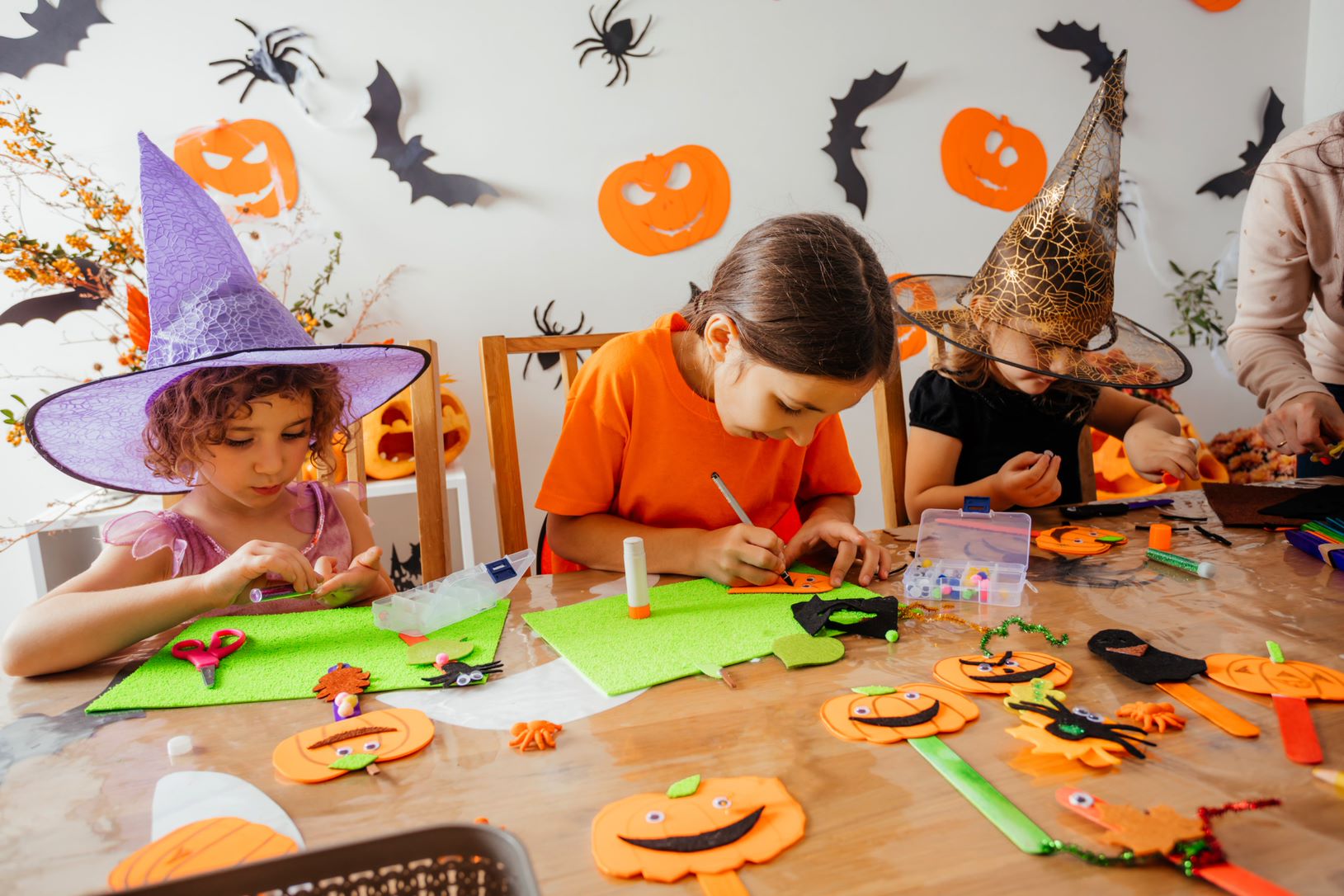Enhancing observation skills Math Worksheets for Ages 7-8
7 filtered results
-
From - To
Discover our captivating Math Worksheets designed to enhance observation skills for ages 7-8! Each engaging activity fosters critical thinking, sharpens attention to detail, and boosts problem-solving abilities in a fun, educational manner. Our worksheets combine vibrant graphics with challenging tasks to keep young learners motivated and enthusiastic. Ideal for classroom or at-home practice, these worksheets help children build a solid foundation in math, while developing essential observational skills. Whether spotting patterns in numbers, comparing shapes, or identifying differences, our resources cater to diverse learning styles, ensuring every child has the opportunity to excel. Start enhancing observation skills today!
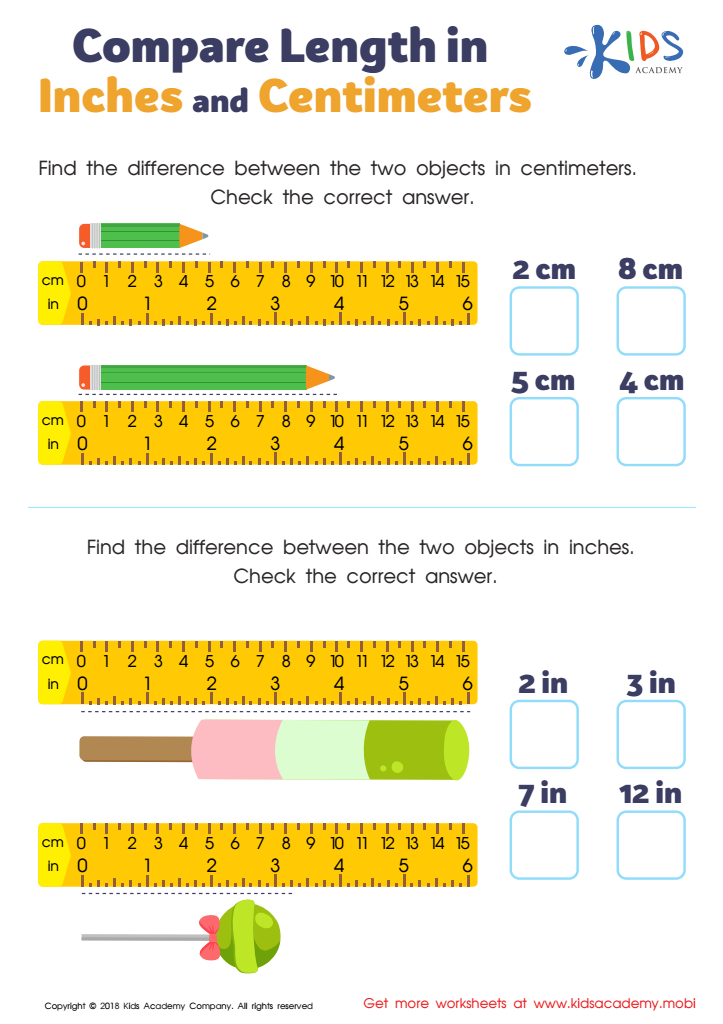

Compare Length in Inches and Centimeters Worksheet


Pollinator Positions Worksheet
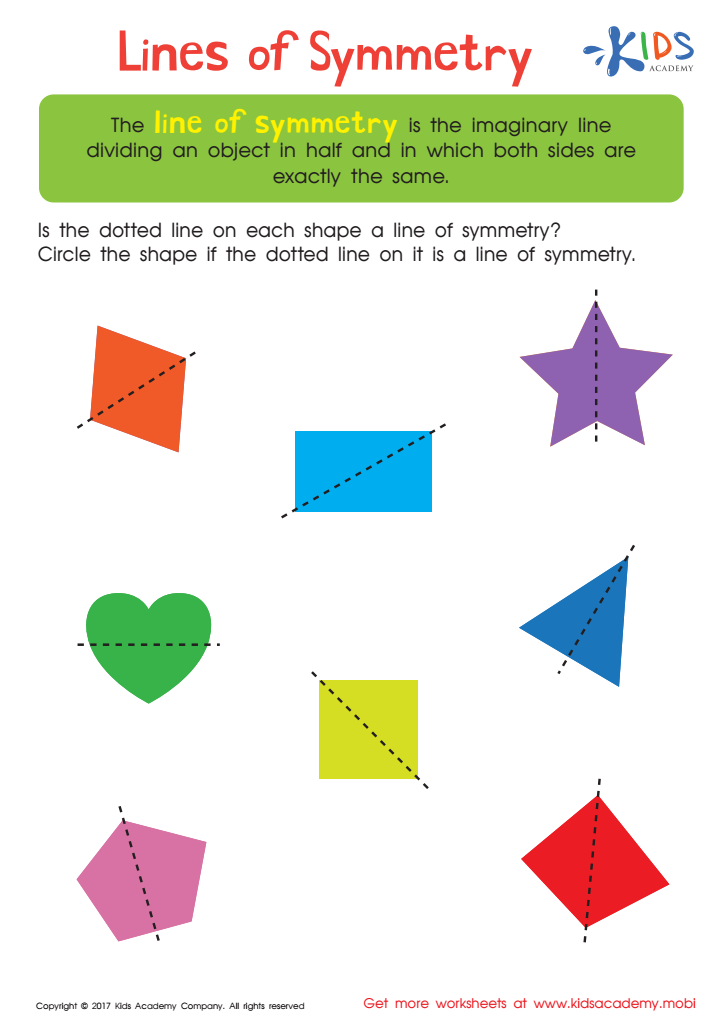

Lines of Symmetry Printable
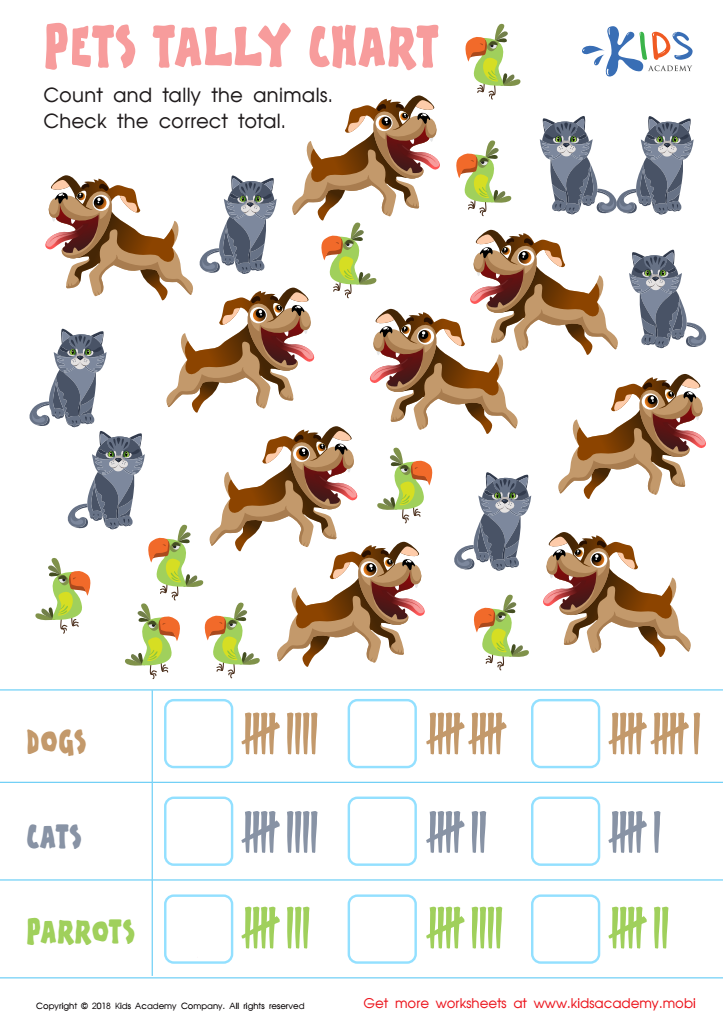

Pets Tally Chart Worksheet
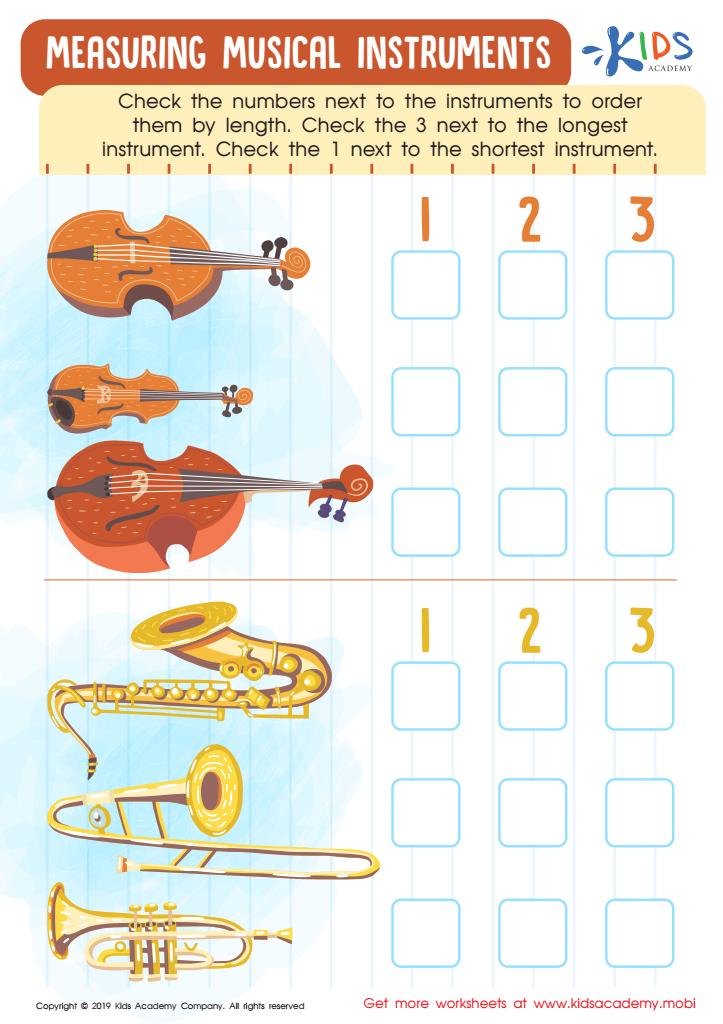

Measuring Musical Instruments Worksheet
Enhancing observation skills in math for children aged 7-8 is crucial for their overall cognitive development and academic success. At this age, children are developing critical thinking and problem-solving abilities. Observation skills enable them to notice patterns, differences, and relationships between numbers and shapes, which are foundational concepts in mathematics. By sharpening these skills, children can better understand and engage with mathematical concepts, making learning more intuitive and enjoyable.
For parents and teachers, focusing on these skills means fostering a sense of curiosity and attentiveness in children. Through activities that promote keen observation, like puzzles, counting games, or comparing objects, young learners can improve their ability to analyze and interpret information. This not only aids their current understanding but also sets a strong foundation for more advanced math topics later on.
Moreover, enhancing observation skills can help children in other subject areas and in daily life. Observant children are often better at following instructions, noticing details in their environment, and understanding cause-and-effect relationships. These abilities contribute to a more engaged and successful learning experience overall and cultivate an intrinsic love for learning that benefits them throughout their educational journey.
Improving observation skills is, therefore, a vital aspect of early childhood education that parents and teachers should actively nurture.
 Assign to My Students
Assign to My Students

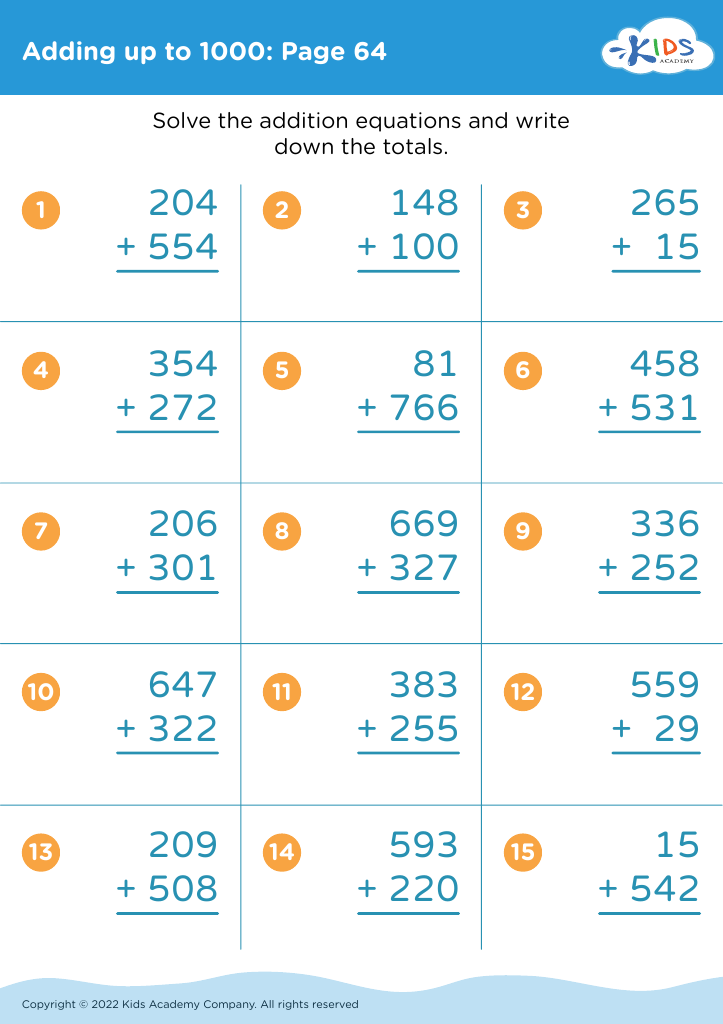





.jpg)
